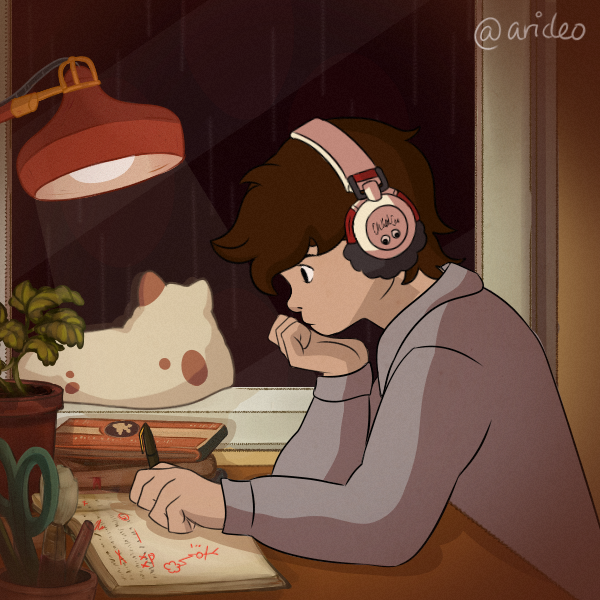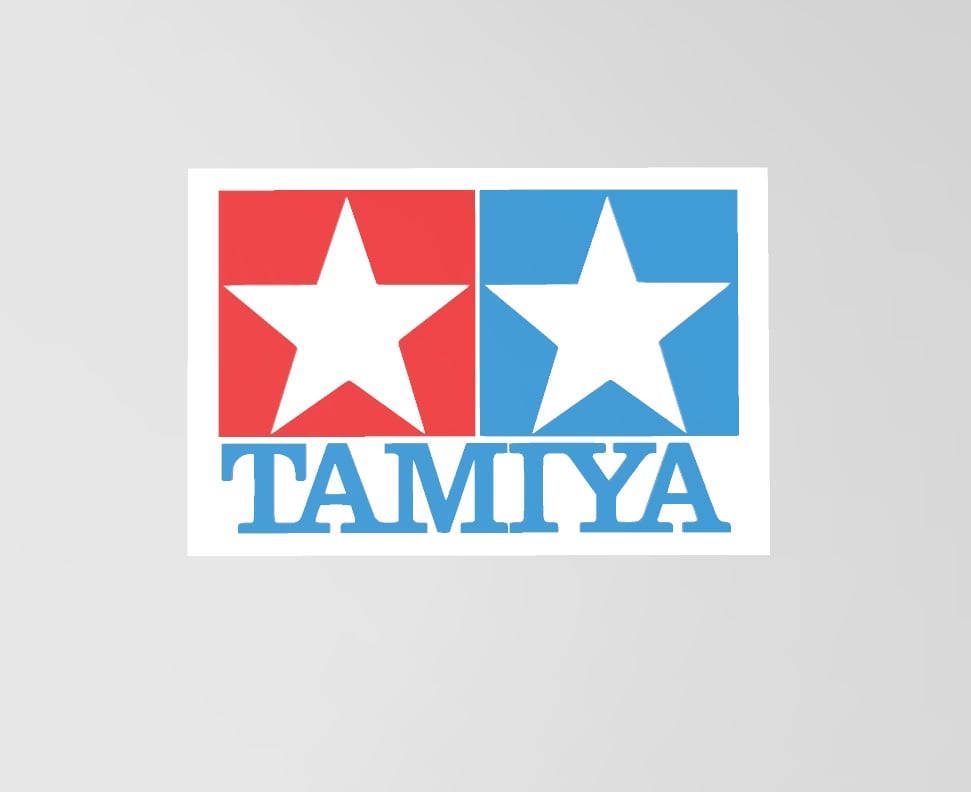It always looked so weird to me, like, who not just read the Bible like a proper book instead of having all of those numbering?
I guess it’s because it makes easy to find some specific line? But that is from an academic perspective instead of something you would put in a faith book?
When did that started and why they put all the numbering?
So many verses. When will it get to the chorus?
Amen!
They got rid of the chorus due to its Pagan Greek origins.
The four Gospels :P
Firstly, the Bible, as we know it, is a collection of books and sections that were written over several thousand years.
I guess it’s because it makes easy to find some specific line? But that is from an academic perspective instead of something you would put in a faith book?
You have this backward. It’s very important for texts of proselytizing religions to be easy to navigate and repeat.
As for when/why it started, this article from BibleOdyssey.org does a good job of explaining that in detail.
So, if I wanna start a 1 billion people religion, gotta write my shit like:
The Lost Apples
- And it came to pass that I went to the park with my apples, But I was so focused on TikTok that I did not heed where I placed them.
- And I wandered the park, watching video after video, And when I finally looked up, my apples were gone!
- I searched high and low, but they were nowhere to be found. I asked the squirrels and the birds, but they had not seen them either.
- And I was filled with great sorrow, for I had lost my apples. I sat down on a bench and began to weep.
- But then I remembered the words of the wise: “Do not despair, for all things are in the hands of the Lord.”
- And I knew that my apples were safe, even if I could not find them. So I stood up and went on my way, trusting that the Lord would provide.
- And as I walked, I saw a little girl sitting on a swing. She was eating an apple, and it was the most delicious-looking apple I had ever seen.
- I approached the little girl and asked her where she had gotten the apple. She smiled and said, “A nice man gave it to me.”
- And I knew that the Lord had provided. I thanked the little girl for the apple and took a bite.
- And it was the most delicious apple I had ever tasted.
If you ever want to steal candy from a baby, remember Lost Apples verses 7-9.
I can’t tell if you’re trying to be clever or not but do you really view that any different than referring to poetry by stanza/line? Or books by page number/paragraph/line? The Bible has been written, rewritten, and edited thousands of times, it makes no sense to say “page 121, paragraph 3” when quoting from it
It also facilitates two things. First, hermeneutics. Which is the art of overanalizing text ad nauseam until you can manufacture new meaning that wasn’t put there by the author in the first place, by sheer force of dubious rethoric. And secondly taking individual lines out of context to support fringe and contradictory statements.
I imagine if your book got translated into hundreds of different languages, eventually people would add numbers to the verses. Sometimes the translated version is not a great translation to the original languages intent, so it’s easy to reference the verse number across other translations or compare it across languages
You don’t need to write it like this. Just write normally (prose or poetry, your choice), and other people will fragment your text this way, while either discussing it [proto-]academically or looking for hidden stuff in it.
Your guess is spot on. It makes it easy to reference. If you look at Wikipedia, with articles and such it cites them by ISBN and page number. Since the Bible is so widely translated into not only different languages, but different versions within languages, as well as printed with varying font sizes, etc, page numbers for such an important book simply wouldn’t happen. Surprisingly, numbering was only introduced as late as 1555. As for the books, they are generally separated into what they were found as. So Matthew is the Gospel written by St Matthew the Evangelist, John is the Gospel written by St John the Evangelist, 1 Corinthians is St Paul the Apostle’s first known letter to the church in Corinth, etc.
I don’t know where the Bible’s numbering in particular comes from, but it’s common in ancient texts. It helped with navigating long works before the printing press gave us exact pagination.
Not just consistent page numbering, but the existence of pages at all—until about 300 CE, most books consisted of scrolls instead of bound codices.
pagination
i learned a new word today, thank you
I don’t know where the Bible’s numbering in particular comes from
1560 Genevra. Before that, only the chapters were numbered. Probably a consequence of Protestantism, but even Catholic bibles adopted it.
It helped with navigating long works before the printing press gave us exact pagination.
It’s still helpful, even nowadays. For example if I told you to find in Sermones the quote at 1.2.69-71 (1st book, 2nd part, lines 69 to 71), you could easily do it. Note how the numbering system is similar in spirit to the one in the Bible - except that the books get an abbreviation instead of a number.
It sure makes it easy for religious people to pick out tiny experts and use them out of context.
Excerpts*
For easy indexing. Lots of influential literary works have this. There’s a universal standard indexing for both the works of Plato and Shakespeare, for example.
Bible history is fascinating. Michael from Inspiring Philosophy on YouTube broke it all down from the original texts (as old as possible) to the King James Version. https://youtu.be/fnlp3--RG3c?si=T01T4emDeT6i6s4-
deleted by creator
On the point of pentameter and other ancient writing quirks. It’s because writing was expensive and not really that common. Ink, paper, quill. It all had to be painstakingly made by hand. Then all the training on reading and writing was a huge time investment as well. So it was relegated to the high classes. And slaves, they used slaves as scribes and basically as personal computers.
So, most of culturally relevant works were actually poems. Lacking writing tools, long passages of texts are hard to memorize. But, poems in regular rhyme and accompanied by structured melodies are actually very easy to memorize. The Odyssey was one such a song.
A master could teach his disciples the words and melody of extraordinarily long passages of information. Names, history, dates, myths, moral essays, by teaching the song. Performing the different passages several times allowed memorization and then they could perform this either for entertainment or for study and analysis via rethorical discussion. This oral tradition is how we have theater plays, stories and songs from 5 thousand years ago. We are pretty certain today that Homer didn’t wholly originally wrote the Illiad and the Odyssey. He belonged to this oral tradition and put it down into writing. Something that might have been seen as unnecessary at the time, for text was relegated to legal documents and treatises and court proceedings.
EDIT: Here’s a practical demonstration. Write down the lyrics for Mr. Brightside. Chances are that you know them by heart.
Much in the same way the Vedas were passed down
deleted by creator
deleted by creator
I apologise for the incoming off-topic… it’s just that you mentioned Latin works, I fucking love it.
Two, the Roman’s also hated writing normally, expect lines and wacky rhyming schemes.
It’s less that they “hated writing normally”, and more that texts were made for a specific purpose and target audience, and the ones written “normally” didn’t catch much attention. But they do exist - and we have surviving counter-examples, like
- Caesar’s De Bello Gallico - he was being concise and clear. It’s a military report, not fancy pants poetry.
- anything Cicero - he wrote a spaghetti, but he wasn’t writing something catchy-sounding so the masses would remember and follow it, it was mostly philosophy geared towards educated speakers. The content mattered more than the form.
But not even for poetry the Romans used wacky rhyming schemes. Rhymes in Latin sound boring, because most words will end with a handful of sounds - it’s too easy to pick a word that rhymes with another. Instead they did some fancy stuff with the metrics, capitalising on short vs. long syllables to create aesthetic effects. I’ll exemplify it with one of my favourite poems. Bolded syllables are long, the others are short:
Catullus V
- Vī·uā·mus mea Les·bia, at·que a·mē·mus (LLLS LSLS SLL)
- rū·mō·rēs·que se·num se·uē·ri·ō·rum (LLLS SLSL SLL)
- om·nēs ū·ni·us aes·ti·mē·mus as·sis! (LLLS LLSL LLL)
- Sō·lēs oc·ci·de·re_et re·dī·re pos·sunt: (LLLS SLSL SLL)
- nō·bīs cum se·mel oc·ci·dit bre·uis lūx, (LLLS LLSL SLL)
- nox est per·pe·tua ū·na dor·mi·en·da. (LLLS SLSL SLS)
- Dā mī bā·si·a mīl·le, dein·de cen·tum, (LLLS SLSL SLL)
- dein mīl·le_al·te·ra, dein se·cun·da cen·tum, (LLLS SLSL SLL)
- dein·de_ūs·que_al·te·ra mīl·le, dein·de cen·tum. (LLLS SLSL SLL)
- Dein, cum mī·li·a mul·ta fē·ce·rī·mus, (LLLS SLSL SLL)
- con·tur·bā·bi·mus il·la, nē sci·ā·mus, (LLLS LLSL SLL)
- aut nē quis ma·lus in·ui·dē·re pos·sit, (LLLS LLSL SLL)
- cum tan·tum sci·at es·se bā·si·ō·rum. (LLLS LLSL SLL)
Translation, copypasted from Wikipedia:
- Let us live, my Lesbia, and let us love,
- and let us value all the rumors of
- more severe old men at only a penny!
- Suns are able to set and return:
- when once the short light has set for us
- one perpetual night must be slept by us.
- Give me a thousand kisses, then a hundred,
- then another thousand, then a second hundred,
- then immediately a thousand then a hundred.
- then, when we will have made many thousand kisses,
- we will throw them into confusion, lest we know,
- or lest anyone bad be able to envy
- when he knows there to be so many kisses.
All verses have exactly 11 metric syllables, even if a few of them require you to elide an ⟨e⟩ before another vowel. Note the general pattern (L = long, S = short):
- All verses start with LLLS (spondee, then trochee).
- Most verses follow it with either SLSL (two iambs) or LLSL (spondee, then iamb).
- Most verses end in SLL (iamb, then a “dangling” long).
Why “most”? Because there are exceptions. And they’re likely there because the author was playing with the rhythm alongside what the “lyric I” is saying:
- the first verse is trying to get Lesbia’s attention, so the middle uses SLSL (two trochees) because they sound faster and more playful.
- the third verse ends with LLL (spondee+long). It’s like someone saying emphatically “screeeeww thooose guuuys”. It makes sense when you look at what the verse says - that the opinion of those old guys shouldn’t matter a single as/“penny”.
- in the sixth verse, instead of a “dangling” long syllable, you got a short one. It ends abruptly - just like our lives, and that’s exactly what the verse talks about.
You’ll also see this sort of attention to the metric foot in other Roman works, like the Aeneid; except that the effect that Virgil was seeking was completely different from Catullus above, it was more like a “shut up, I’m going to tell you something important and profound”. But still no rhymes.
deleted by creator
Even tying sound with movement, on itself, is surprisingly insightful. If they thought that Earth didn’t make a sound because it was fixed, this means that they were aware that movement creates sound. (Later on we’d discover that sound is movement.)
We drew many comparisons but I think I remember one being that the story opens like that in the Odyssey I think?
I’m a bit clueless on Greek but I gave it a check, and it was the Odyssey indeed - the “lyric I” starts right off the bat asking the Muse about Odysseus. And since Virgil crafted the Aeneid as a continuation of the Odyssey, he most likely took a lot of the poetic resources from it, kind of like a fan game ripping off assets from the original.
Note however that Ancient Greek poetry had another resource at hand, that Latin didn’t - tone. And the authors of the past used it quite a bit, so the poem had a melody by itself, by just reading it aloud. Like this:
- ἄν·δρα μοι ἔν·νε·πε, μοῦ·σα, πο·λύ·τρο·πον, ὃς μά·λα πολ·λὰ (H - - H - - L - - H - - L H - - L)
- πλάγχ·θη, ἐ·πεὶ Τροί·ης ἱε·ρὸν πτο·λίε·θρον ἔ·περ·σεν (H - - L H - - L - H - H - -)
Those are the two first verses of the Odyssey. Here H/bold = rising or high, L/italics = low or falling, and dash/unmarked = unstressed.
Any preferred translations [for De Bello Gallico]? All I have is Latimore translations for the texts I’ve mentioned hahahaha
I usually follow it in Portuguese (my L1), so I can’t help you much with that. That said I’d recommend you to avoid translations flowering the text too much (it goes against the “spirit” of the text), or insistently keeping Latin word order intact (e.g. “Gallia is wholly divided in parts three” or junk like this, it sounds awful in English).
Or other readings you might think I’d enjoy? I think Odyssey was my absolute favorite, but I’m also a Golden Ass enjoyer of sorts as well.
For the Odyssey the nearest in spirit that you’ll get in Latin would be the already mentioned Aeneid. Past that you’d probably need to either go back to Greek works (like Argonautica) or even modern languages (like Os Lusíadas, same “we’re out, to the unknown world, to do something great” vibe).
Things like the Golden Ass are easier to find, though. Anything Plautus will give you a good laugh: Aulularia (The Pot of Gold), Miles Gloriosus (The Proud Soldier), Bacchides. Often there are “moral messages” in them but they’re mostly slapstick comedy.
You might also like some of Catullus’ poems. The one from my example is well-behaved, but check poems 16, 39, 58 and 84 for some fun. 16 in special is quoted often due to the profanity.
I often compare Martial’s Epigrams to the Roman version of shitposting.
deleted by creator
deleted by creator
It’s to facilitate citing random verses out of context to support whatever you need it to.
Mnemonics for memorization and oral repetition. If that’s not the origin, it certainly works that way.
For example, I can quote John 3:16, but if you asked me, “What was that thing god said about his son?”
because it gets quoted a lot. Some Christian religions go to an anual cycle during mass, where the whole thing is read few verses every day, so you have to brake it down
Notice that we write laws and contracts in the same way. The bible was both. It was used to settle disagreements and to sentence people.
Guess what else is divided like that. That’s right, it’s the Quran. And maybe the Torah too, I don’t know.
That’s just a trope of religious texts.
Keep in mind that it’s pure fantasy goobledygook.
That doesn’t have anything to do with OPs question.
I don’t give a shit.
Oh man, you’re so cool!
True.Not fantasy fiction.
Least arrogant athiest on Lemmy
Cut the guy some slack. He hasn’t finished 9th grade yet.
True. Luckily you can become a Paramedic and save other dumbass religious humans with a GED.
“In this moment, I am Euphoric”
deleted by creator
Yes I know is a fantasy book.










